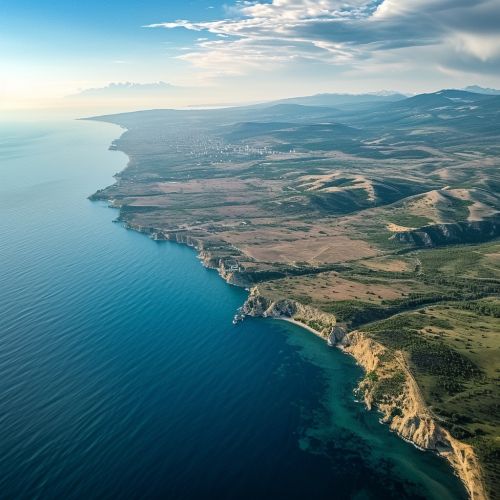Politics of Crimea
Historical Background
The Crimean Peninsula has a complex political history that dates back to ancient times. It has been inhabited by various peoples and has been part of many different states and empires.

In the ancient period, the region was home to Greek colonies and later became part of the Roman Empire. During the Middle Ages, it was ruled by the Byzantine Empire, the Khazars, and the Mongols. In the 15th century, it became the center of the Crimean Khanate, a Turkic state that was a vassal of the Ottoman Empire.
Annexation by Russia in 1783
The political landscape of Crimea changed dramatically in the late 18th century when it was annexed by the Russian Empire. This event marked the end of the Crimean Khanate and the beginning of a long period of Russian rule.
Crimean War
The mid-19th century saw the outbreak of the Crimean War, a major conflict between Russia and an alliance of Britain, France, and the Ottoman Empire. The war was largely fought on the Crimean Peninsula and had significant political implications for the region.
Soviet Period
In 1921, following the Russian Revolution and the subsequent Civil War, Crimea became an autonomous republic within the Russian Soviet Federative Socialist Republic (RSFSR), one of the constituent republics of the Soviet Union.
In 1954, in a move that would later have significant political implications, the Soviet leadership transferred Crimea from the RSFSR to the Ukrainian Soviet Socialist Republic.
Post-Soviet Period and Ukrainian Independence
With the dissolution of the Soviet Union in 1991, Crimea became part of an independent Ukraine. The region retained its status as an autonomous republic within Ukraine, but its relationship with the central government in Kyiv was often tense.
2014 Annexation by Russia
In 2014, following political upheaval in Ukraine, Russia annexed Crimea in a move that was widely condemned by the international community. This event has had profound implications for the politics of Crimea and has led to ongoing tensions between Russia and Ukraine, as well as between Russia and the West.
Current Political Status
Today, the political status of Crimea is a contentious issue. Russia administers the region as two federal subjects: the Republic of Crimea and the federal city of Sevastopol. However, most of the international community, including Ukraine, does not recognize the annexation and considers Crimea to be part of Ukraine.
